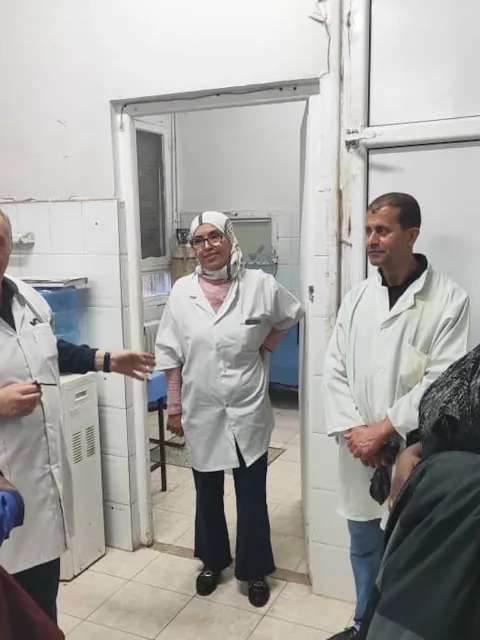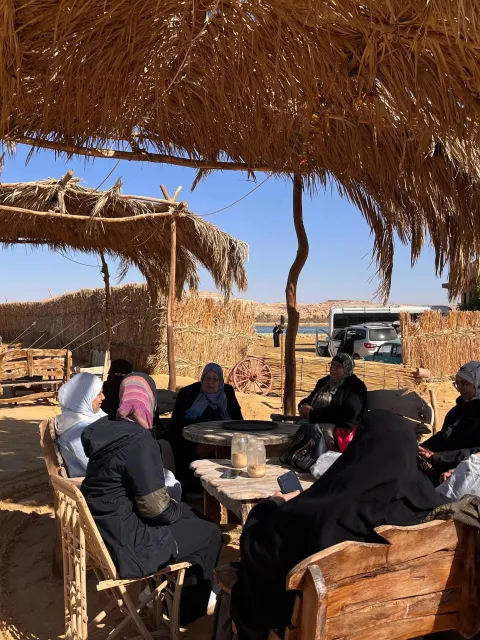Uniting for cancer control: Highlights from the World Cancer Congress 2024
UICC closed a successful event in Geneva, where more than 2,000 delegates from over 120 countries discussed global strategies and new approaches to addressing essential challenges facing the cancer community. Participants forged vital relations and connected with international partners, working together to reduce the global cancer burden.

The World Cancer Congress 2024 in Geneva, Switzerland, took place 17-19 September. Organised by UICC, the event gathered over 2,000 delegates from more than 120 countries, including UICC members, researchers, healthcare professionals, private sector representatives and advocates, to focus on key themes such as cancer prevention, care, and global policy.
The Congress days were filled with plenaries, sessions, abstract presentations, and lively debates on challenges affecting the full range of cancer control. The event also featured workshops and other learning opportunities, a supportive care Pavilion, a spotlight stage, an exhibitors' hall and social events.
In the opening plenary session, “Shaping the future: preventing cancer and NCDs – advocating for commitments at the UNHLM on NCDs in 2025,” panelists highlighted the need to integrate cancer and NCD prevention into global policies and to urge governments and civil society to act on identified cancer and NCD risk factors.
Another plenary on “Cancer care 2.0: AI, real stories, real solutions”, along with several other sessions, examined how artificial intelligence is transforming cancer care. Presenters demonstrated AI’s role in improving diagnostics and treatment while addressing the challenges of data privacy, the need for robust regulations to safeguard patients, and exploring the benefits and risks of AI in cancer care. Speakers evoked AI’s potential to revolutionise treatment while emphasising the importance of ethical standards and human oversight in its application.
Collaboration was a central theme in the UICC and Partners plenary session: “Multi-Stakeholder Action and Cancer Control,” which showcased examples of successful partnerships driving cancer prevention and treatment, and the great value of multi-sector cooperation to address global cancer challenges.
A report on “Integrated Approaches for Women’s Cancers,” was launched at the Congress illustrating holistic strategies to improve health outcomes for women. The report outlines the benefits of integrating cancer prevention and treatment services, especially for breast and cervical cancers, to improve health outcomes. It emphasises the importance of combining services, such as joint screening, to increase accessibility, particularly in low- and middle-income countries.
Meanwhile, the panellists in the plenary session on “Women, Power and Cancer” reviewed progress since the launch of the Lancet Commission on Women, Power, and Cancer.
Other key topics included air pollution and antimicrobial resistance, with sessions focused on their impact on cancer care and the urgent need for policy responses. The Congress also saw the launch of a branded cancer film series, “Rewriting Cancer”, produced by BBC StoryWorks Commercial Products for UICC, highlighting personal stories and innovations shaping cancer care worldwide.
Ultimately, the World Cancer Congress reinforced the added value of face-to-face interactions to foster new partnerships and collaborations. With UICC members and partners leading the charge, the event underscored the critical role of international cooperation in advancing cancer control and improving patient outcomes globally.
“What I see at Congress is a community, a cancer control community, one that comes together, around shared values, shared connections, and dreams. Like all communities, we work best when each of us plays our part, when we collaborate, when we encourage and when we support each other.”
– Prof. Jeff Dunn, AO, President of UICC
Key scientific insights from the 2024 World Cancer Congress: A special report in the International Journal of Cancer
The Congress also showcased the latest advancements in cancer research, prevention, and care. Select abstracts from the Congress are featured in a special edition of the International Journal of Cancer, highlighting key developments that have the potential to reshape global cancer control efforts.
A significant focus of the abstracts was on innovative approaches to cancer detection and treatment. Advances in technologies such as machine learning and biomarker identification promise to improve early detection and offer new pathways for personalised cancer care. These innovations are particularly crucial in developing non-invasive screening methods, which could make early diagnosis more accessible and reduce cancer mortality.
Cancer prevention through education and public health policy also featured prominently. Creative strategies, including gamification and community outreach, were discussed as effective tools for raising awareness and promoting healthier behaviours. Additionally, policy recommendations focused on regulating cancer risk factors such as alcohol and tobacco to mitigate their impact on public health.
Equity in cancer care was another major theme, with discussions centred on addressing disparities in access to screening, treatment, and supportive care. There was a strong emphasis on tailoring interventions to underserved populations and enhancing health systems to ensure that early detection and prevention efforts reach those who need them most.
Awards – Best Congress Abstracts
The top abstracts among the more than 1,200 submitted to the World Cancer Congress were recognised in three categories: Best Scientific Study, Best Advocacy and Policy Report, and Best Fundraising Campaign. The Awards Jury, comprised of the Abstract Committee Executive leads, selected the winners based on the best-scored submissions.
The Best Scientific Study Award went to Fabio Dennstädt of Inselspital Bern, Switzerland, for his work on creating a CDE-based data structure to improve radiotherapeutic decision-making in breast cancer. Finalists included Zhiyuan Fan from Peking Union Medical College for research on AI-assisted sponge cytology for cancer screening in China, and a socioeconomic analysis of secondary cancer incidence in England by Suping Ling from the London School of Hygiene & Tropical Medicine.
The Best Fundraising Campaign Award was remitted by Elina Viitaniemi, Director of Cancer Support Switzerland. The award went to Maryna Kartashova of Medisense, Ukraine, for her efforts to restore an oncology clinic amidst the challenges of the war. Finalist Shazia Fatima from the Pakistan Atomic Energy Commission addressed capacity building in cancer care in Pakistan, while the abstract by Matt Lewis from the American Cancer Society looked at long-term community engagement in the United States.
Rob Cunningham of the Canadian Cancer Society won the Best Advocacy and Policy Report Award for his work on implementing health warnings on individual cigarettes, setting a world precedent. Finalist projects included a mobile app for cancer treatment collaboration by Justine Swindell from the American Cancer Society, and a campaign to hold the tobacco industry accountable in Ecuador, by Daniel Dorado from Corporate Accountability.
Find information about the winner of the World Cancer Day 2024 award here.
The Congress online platform will remain open until the end of the year, allowing participants to revisit session recordings and engage in discussions.
UICC would like to thank the Congress speakers, abstract presenters, committees, partners, co-hosts, sponsors, and exhibitors for their contributions and all delegates for their active particpation and looks forward to seeing everyone in Hong Kong in 2026!
View photos from the World Cancer Congress 2024
Please credit the Union for International Cancer Control (UICC) when using images, specifying that they were taken during the World Cancer Congress 2024.
Last update
Monday 07 October 2024
